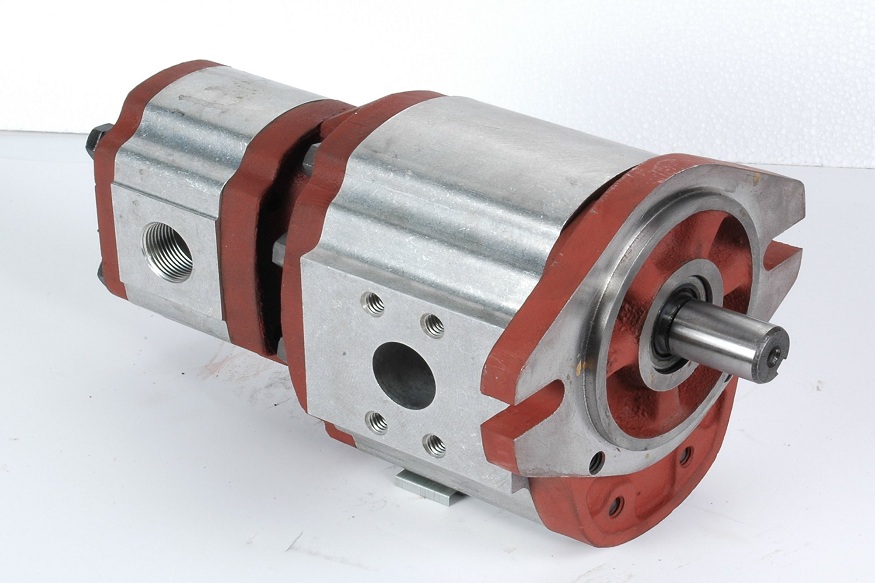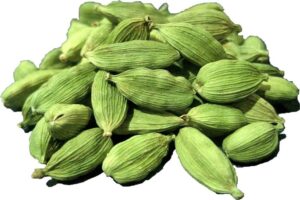How to Select the Right Industrial Gear Pump for Your Plant
5 min read
Choosing the right equipment is one of the most crucial decisions for any manufacturing or processing plant. Among the many components that keep operations running smoothly, the industrial gear pump plays a significant role in fluid transfer, lubrication, and circulation systems. On the other hand, selecting the right pump ensures reliability, durability, and optimized performance.
This article will guide you through the key factors to consider when choosing an industrial gear pump and how understanding your plant’s requirements can help you make the best decision.
Understanding the Basics of an Industrial Gear Pump
This design ensures a consistent, steady flow and makes the pump ideal for applications where accuracy and reliability are critical.
Common uses of gear pumps include handling lubricating oils, hydraulic fluids, and chemicals in industries such as manufacturing, energy, food processing, and petrochemicals. Because of their robust construction and ability to handle high-viscosity fluids, they remain one of the most trusted pumping solutions.
Why Selecting the Right Gear Pump Matters
The performance of your equipment depends on how well-suited each component is to its intended function. A gear pump that does not match the viscosity of the fluid, operating pressure, or flow requirements will cause inefficiencies and premature wear.
By working with experienced oil pump manufacturers or suppliers, you can avoid costly mistakes and ensure your pump is designed to handle the specific demands of your plant. Investing the time to evaluate your options can pay off in reduced downtime, lower maintenance costs, and greater overall system efficiency.
Factors to Consider When Choosing an Industrial Gear Pump
When selecting an industrial gear pump for your plant, you need to consider several critical factors:
1. Type of Fluid Being Handled
The properties of the fluid are the most important factor in pump selection. Gear pumps are well-suited for viscous liquids like oils, resins, and fuels. However, some fluids may be corrosive, abrasive, or temperature-sensitive. Understanding whether the fluid is lubricating or non-lubricating, clean or contaminated, will help you choose the right materials and design features.
2. Flow Rate Requirements
Every plant has specific flow rate demands. A gear pump provides a steady and controlled flow, but the size and gear design must match your required capacity. Undersized pumps can overwork and wear out quickly, while oversized pumps may waste energy. Proper sizing ensures efficiency and longevity.
3. Operating Pressure
The pressure at which your system operates influences pump selection. Gear pumps typically handle moderate pressures well, but not all models are designed for high-pressure systems. Consider the maximum and minimum operating pressures to ensure your pump can perform consistently without stress or damage.
4. Viscosity Range of Fluids
Viscosity is a crucial consideration. An industrial gear pump is often chosen because it performs exceptionally well with high-viscosity fluids. However, if your plant processes fluids with a wide range of viscosities, you may need a pump capable of handling those variations without performance issues.
5. Temperature Conditions
Extreme temperatures, whether hot or cold, affect pump materials and performance. Certain elastomers, seals, and metals are more resistant to temperature fluctuations. Ensuring your pump can handle the operating environment of your plant will improve its reliability and service life.
6. Material Compatibility
Choosing the correct material for gears, shafts, and housings ensures compatibility with the fluid being pumped. For example, stainless steel may be needed for corrosive chemicals, while cast iron is often sufficient for oils. Compatibility reduces the risk of premature wear and contamination.
7. Maintenance and Serviceability
Even the best pump will require periodic maintenance. Selecting a design that allows easy access to parts, such as gears and seals, reduces downtime during repairs. Plants should also consider the availability of spare parts and the reputation of oil pump manufacturers in providing after-sales support.
8. Efficiency and Energy Consumption
Energy efficiency is a growing concern for many industries. Efficient pumps not only lower utility bills but also reduce your plant’s carbon footprint.
Comparing Gear Pumps with Other Pump Types
Before finalizing your decision, it is worth comparing an industrial gear pump with other available pump technologies.
- Centrifugal pumps are ideal for large volumes of low-viscosity fluids but struggle with thicker liquids.
- Diaphragm pumps handle abrasive and corrosive fluids well but may not provide the same steady flow as gear pumps.
- Screw pumps perform efficiently with high-viscosity fluids but are often more expensive and complex.
In many cases, gear pumps strike the right balance between cost, durability, and performance, particularly for handling oils and other medium-to-high-viscosity fluids.
Working with Reliable Manufacturers and Suppliers
Not all pumps are built the same, which is why partnering with trusted oil pump manufacturers can make a difference. Experienced suppliers can provide technical support, customization, and detailed recommendations based on your plant’s unique needs. They can also ensure compliance with industry standards and deliver pumps that meet safety and performance requirements.
When choosing a supplier, consider their experience, product range, reputation for quality, and after-sales service. A reliable partner will help you optimize your investment and keep your operations running smoothly.
Best Practices for Extending Pump Life
After selecting the right industrial gear pump, proper installation and maintenance practices will maximize its service life. Here are a few best practices:
- Regular lubrication: Ensure moving parts are properly lubricated to minimize wear.
- Routine inspections: Check for leaks, unusual vibrations, and abnormal noises.
- Proper alignment: Misalignment during installation can reduce pump efficiency and cause premature failures.
- Monitor operating conditions: Keep track of flow, pressure, and temperature to detect issues early.
- Replace worn components promptly: Delaying repairs often leads to larger breakdowns and higher costs.
Selecting the right industrial gear pump for your plant is not a decision to take lightly. By considering factors such as fluid properties, flow rate, pressure, viscosity, temperature, and material compatibility, you can ensure that your equipment performs efficiently and reliably. Partnering with trusted oil pump manufacturers further enhances your ability to secure the right solution, backed by technical support and long-term reliability.
A well-chosen pump is more than just a piece of machinery—it is an investment in the efficiency, safety, and success of your plant operations.






